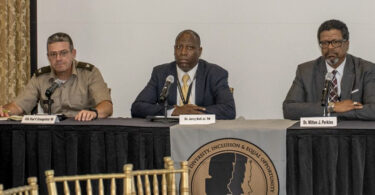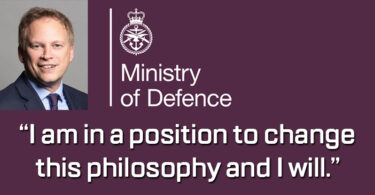By Scott McQuarrie, USMA ’72
President, Veterans for Fairness and Merit
If we fail to reverse our present course, our grandchildren will live in a world with much less freedom than exists today, greater conflict and disorder (even chaos), frequent physical danger and far lower living standards.
Who will lead us out of this?
This is a critically important question, difficult to answer. None of us are in a government leadership position, but many of us are involved in public discourse attempting to effect change.
Those of us who are not currently involved could get involved.
One of the many things I learned from my 2 years of recruiting veterans (grades E-2 through O-10) for membership in Veterans for Fairness and Merit was that many seem to lack motivation and/or the courage to get involved (even if they were philosophically aligned with VFM’s mission – “advocate for equal opportunity, racial neutral, exclusive use of merit in military officer accessions, assignments and promotions”). Most are busy with daily lives, but for all who are able it is a matter of priorities.
In VFM’s case, that choice was just whether to enroll as a member of an organization (with no cost or obligation to do anything) that would file an amicus brief at SCOTUS. That included the choice of enrolling – done in writing – as an “anonymous” member, whereby we could use that person’s accomplishments to explain our members’ collective credentials, but not disclose his/her name (see attached Brief, Appendices 1-5, pages 1a – 49a).
The brief’s basic message was described to be that it would say that the use of racial preferences in service academy admissions was not a national security imperative – that the country could be defended by the military without DoD’s needing to be exempt from compliance with constitutional equal protection in the area of service academy admissions.
For every veteran who said “yes” and enrolled (well over 600) there were at least 2 who said something like, “I agree with your position, but [fill in any of innumerable reasons].”
(There were of course some who said they disagreed and could not support the effort. One, a former academy superintendent, called the effort “racist.” Another, a former astronaut, claimed that anti-Black discrimination is pervasive in the military and that racial preferences are necessary to fix that problem.)
A common factor for those who were philosophically aligned but who said no was, I believe, a fear of consequences with their peers (even though we offered anonymity as an option, and even though I was able to say that I already had enrolled two retired 4 stars who, without knowing me, trusted me when I said we would honor their request to be anonymous (see pp. 1a and 9a for listings of “GEN Anonymous”).
All of us learned early that effective leaders must lead by example. We also learned that courage, both moral and physical, is an essential leadership trait.
So my answer to this question is that to the extent we are able, we all should “lead” by having the courage and taking the time to get involved to bring about intelligent, informed dialogue, and do so in a manner that offers policymakers incremental solutions to problems (of which there are many from which to choose for one’s focus).
We should also require of our elected officials that they carry out their roles as leaders in a way that is honest, transparent, informed, dignified, persistent, appeals to the majority’s better instincts, and is unifying.
Unfortunately, politics today is so vicious that many good people don’t participate, or can’t because of the impacts on family.
One example I mentioned earlier is Kendall (and his wife, Sheila) Qualls. They do much to educate, cajole and advocate for advancement of the Black community through focus on root problems such as the disintegration of the nuclear family and reorientation of dialogue away from the victimization narrative to “taking charge” of one’s life and using the opportunities our society offers anyone willing to embrace them.
But it is the policy makers who matter, and today’s leaders are in places like our service academies. That’s one reason my efforts (working with Congress) are focused on trying to optimize the quality of those who are admitted there.
More impactful are the efforts of many who volunteer so much of their time with STARRS, trying to collect and spread information about what is happening at our service academies and addressing problems when they can (such as was successfully done with the DoD vaccine mandate and enforcement).
They are “leading” unselfishly.
STARRS Note: Board of Advisors Member Kendall Quall will be the guest speaker at STARRS next Town Hall on 17 April 2024. More Info








Leave a Comment